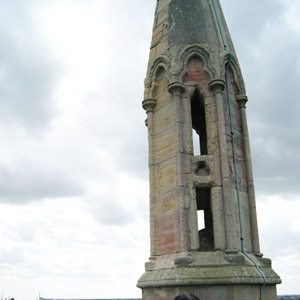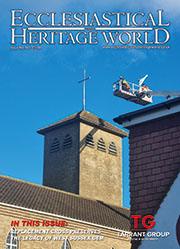RICS Conservation Accreditation and me
 A Personal View of the RICS Conservation Accreditation Scheme
A Personal View of the RICS Conservation Accreditation Scheme
By Anthony Redman BSC FRICS
I received an official looking letter in 1985 telling me that because I was not a qualified architect, I could no longer undertake Quinquennial inspections.
As a graduate surveyor, part of my training had been in the assessment of buildings and the clear writing of reports, and I knew such training had evaded most of my architect colleagues. I wrote to the RICS to ask them what they were going to do about it.
Shortly after, the Church of England decided to review the Faculty Jurisdiction Measure and so I wrote to the RICS, as did others in a similar situation, and somewhat hesitantly they wrote to Bishop Eric James, chair of the revision committee, to plead the case for surveyors to do inspections.
James asked how many competent surveyors there might be and someone in Great George Street came up with the figure of 150, and when the James committee challenged the RICS to prove competency, the idea of accreditation was born.
In 1989, the measure was amended to say that an inspection on a parish church had to be undertaken by a chartered architect or a conservation accredited chartered building surveyor. The legal restriction in favour of architects predated the establishment of building surveyors as a separate profession, but now the “hare was running” in our favour.
The RICS conservation group was tasked to model a scheme, and I became one of the first conservation accredited surveyors on the list. Many years later, the Cathedrals measure came up for review and I suggested the legal restriction in favour of architects should be broadened in this category of buildings too. The Cathedrals were very much a closed shop, but the RIBA had to acknowledge that “cathedral architects” gained their site specific expertise via post qualification experience rather than academic training, and so the law was changed again.
In my opinion, the future of accreditation depends very much on accredited professionals training the next generation, as unless academic understanding is tempered by sound practical experience, accreditation will become just another restraint of trade.
http://www.wcp-architects.com















